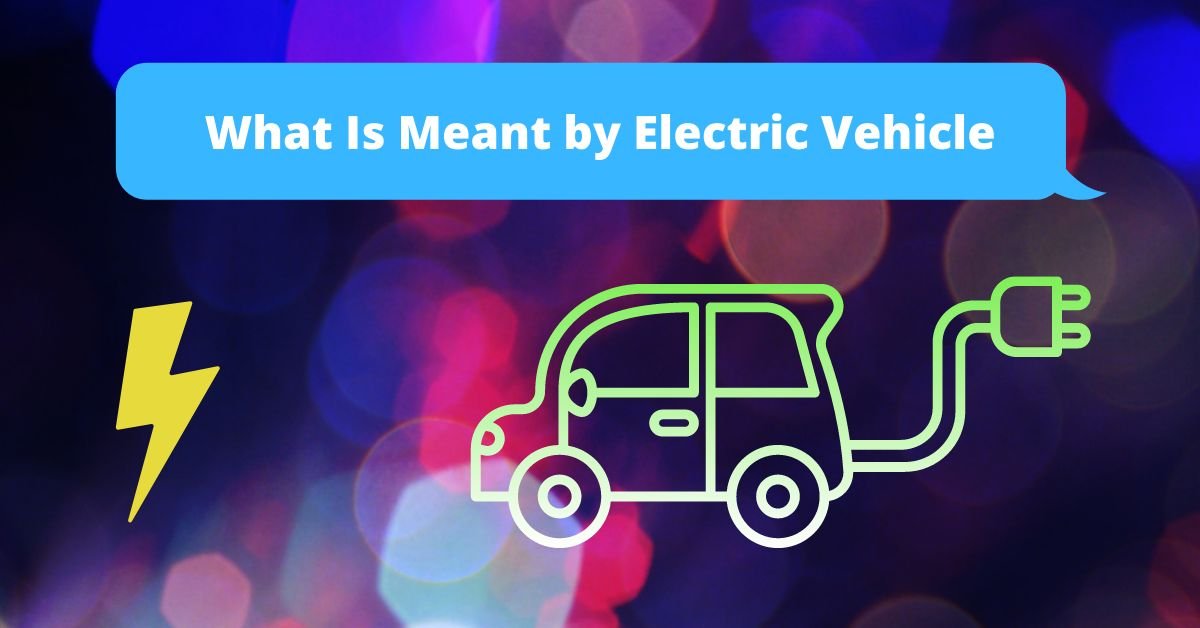Meant by Electric Vehicle, history of electric vehicles, advantages of electric vehicles, working principle of an electric vehicle, electric vehicle ppt.
What Is Meant by Electric Vehicle

The term “electric vehicle” is used to describe a car that runs on electricity. Some of the most common examples are the REVAi and the GM EV1. There are many other types of electric vehicles, as well. But what is the most important difference between these vehicles? Let’s look at the pros and cons of each. For starters, these cars are environmentally friendly, and they don’t produce harmful emissions.
EV stands for an electric vehicle. It is a vehicle powered entirely or partially by electricity. The cost of running an electric vehicle is similar to that of a gasoline-powered car. However, the difference is in the amount of energy used. When comparing an EV to a gasoline-powered one, you need to consider its total cost of ownership. The total cost of ownership of an EV includes the cost of purchasing, operating, maintaining, and disposing of the vehicle.
In addition to electric cars, there are also electric scooters, trains, and planes. They are powered by batteries and can be recharged with charging stations. These charging stations can be placed in the home of the owner or in public spaces. An average electric car’s range is about 80 to 700 kilometers.
The amount of driving range depends on battery size, weight, and weather conditions. The International Energy Agency’s Global EV Outlook 2021 reports that more than one billion electric vehicles will be sold by 2021.
Most electric vehicles have batteries. The battery size is measured in kilowatt-hours. The battery size is equivalent to the number of gallons of fuel in a gas tank. Unlike gas-powered cars, an EV’s battery is rechargeable, which means it can be refilled without a fill-up. This feature of EVs also makes them ideal for long trips.
Battery electric vehicles do not produce tailpipe emissions and don’t pollute the atmosphere. EVs can be powered by renewable energy sources such as wind or solar. This means that you don’t need to plug your vehicle into an electricity source to charge your battery. However, a hybrid car can switch from fuel engine mode to EV mode without plugging into one. The battery size for an electric car can range anywhere from eight to ten-kilowatt hours.
Another benefit of electric vehicles is their low-cost cost of ownership. An electric vehicle can be paid for with its net present value over 100 years, compared to a combustion-powered car that lasts 15 years. The International Energy Agency published a report entitled “Global EV Outlook 2021” to provide some background on the market for these vehicles. The International Energy Agency’s report also suggests that EVs will cost less than gas in the long run.
An electric vehicle uses batteries to power its motor. Its mileage is much less than that of a gasoline-powered car, but it is sufficient for the average driver. The fuel equivalent of an electric vehicle is usually the same as that of a gasoline-powered car. In this way, the cost of an electric vehicle is more expensive than a conventional gas-powered car. The latter is more efficient than the former.
Electric vehicles are an excellent option for both city and country use. They have many advantages over conventional gasoline-powered cars. They can save gasoline and are more efficient, while at the same time reducing air pollution. And the International Energy Agency estimates that electric vehicles will save $2.4 billion by 2021. While there are advantages to EVs, the traditional combustion engine has some drawbacks. A diesel-fueled vehicle is faster, but an electric car will cost more.
A diesel-powered car is an electric vehicle that uses fuel. Its fuel-efficient equivalent is the same as a gas-powered car, but it is a hybrid. A hybrid electric vehicle uses a battery and can be switched between EV and gasoline modes. A hybrid EV can be converted from a fuel-powered mode to an EV mode. A hybrid electric vehicle uses a gas engine and is not pluggable.
While electric vehicles are better than gasoline-powered vehicles, they have a disadvantage. While they may last longer, they can use more gasoline than a gasoline-powered car. They also typically consume more gas than a conventional vehicle and are more expensive. EVs are better for the environment because they do not produce harmful emissions. While they are more expensive than a conventional car, they are still more efficient. The advantage of hybrid electric vehicles is their lower price.
Compared to gasoline-powered cars, an electric vehicle has a much smaller mass than a gasoline-powered car. EVs are more efficient than gasoline-powered cars. Their low-mass design allows them to travel further. A hybrid electric vehicle has a larger battery, but no internal combustion engine. The EV has no internal combustion engine, meaning it can use more electricity. The battery, however, has a larger capacity, which increases the overall range.
Read More:
